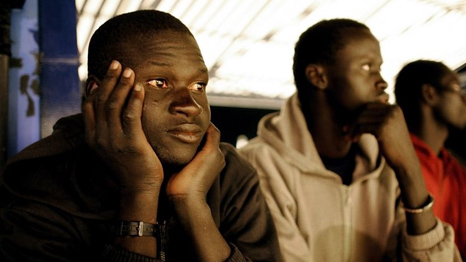Renowned policy analyst Alfred Appiah has pushed for a comprehensive reform to place all of the nation’s youth-focused agencies under one central authority.
His comments rekindle an ongoing discussion about the inefficiencies and duplications that plague Ghana’s public institutions, especially those in charge of youth unemployment and skill development.
Appiah, who is known for his realistic yet progressive policy criticisms, presents a convincing image of a single organization that combines the duties and goals of the Ghana Enterprises Agency (GEA), National Youth Authority (NYA), National Entrepreneurship and Innovation Programme (NEIP), and Youth Employment Agency (YEA).
According to him, these organizations’ overlapping roles not only result in waste of limited public resources and duplication of effort, but they also make it more difficult to provide effective services to Ghana’s youth, the very group they are supposed to empower.
“Ultimately, the goal is to enhance young people’s attachment to the labour market, whether through skills training, direct employment, or entrepreneurship. I imagine a single overarching agency with consolidated funding, unified outcomes, and standardised procedures”
Alfred Appiah, renowned Policy Analyst
He maintained that resources that could be used directly for youth-focused interventions are instead diverted by the current structure, which is characterized by numerous CEOs, deputy CEOs, and high-level bureaucracies.

Appiah believes Ghana could make better use of its limited resources, increase accountability, and guarantee a bigger impact by combining these agencies into a single, overarching organisation with centralized funding, unified outcomes, and standard operating procedures.
Integrated Service Delivery for the Ghanaian Youth
The model proposed by Alfred Appiah is both ambitious and realistic. He suggested a more straightforward system that would allow youth to access a single platform from anywhere, whether it be virtually online or in person at district offices.
He stated that after they interacted with the system, their needs would be evaluated and they would be assigned to the best intervention, which could include YEA employment modules, Adwumawura apprenticeship programs, or assistance through entrepreneurship schemes.
He firmly feels that such a model would simplify the youth employment process, remove uncertainty regarding where to seek assistance, and enable the government to more effectively track each person’s progress from first contact to job placement or business establishment.
“It would become easier to see how people are progressing through the system, from a low-skilled unemployed youth to a business owner,” Appiah suggested, highlighting the importance of data-driven tracking and outcome evaluation.

Reimagining Student Financial Support
Youth employment and skill development are only one aspect of Appiah’s reformist philosophy. He also pushed for a comparable consolidation in the area of financial aid for postsecondary students.
At the moment, Appiah noted that students who want loans, scholarships, or allowances have to deal with several different organizations, each of which has its own procedures, deadlines, and qualifications.
“I feel the same way about consolidating all post-secondary student support—loans, scholarships, allowances—under one umbrella organization.”
Alfred Appiah, renowned Policy Analyst
He thinks that this would increase efficiency and transparency in the distribution of public funds in addition to making access simpler and more equitable for students.
Appiah’s observations are made at a time when the public sector in Ghana is being scrutinized more and more for its inefficiencies and excessive wage bills.
His proposal to cut back on senior management roles in youth-oriented organizations is in line with broader demands for budgetary restraint and a more efficient government.

Importantly, Appiah urged legislators to think about how many more youth could be served by shifting the large compensation packages of redundant management positions to direct programming.
He urged bold restructuring, visionary leadership, and a departure from the disjointed, piecemeal methods that have defined Ghana’s public youth interventions for many years.
Appiah is optimistic despite acknowledging that his views might appear idealistic in the face of powerful political patronage and bureaucratic interests.
“I’ll keep dreaming and hoping we get there one day,” he remarked, underscoring his strong commitment to systemic change and a more effective, fair, and youth-centred approach to public policy.
The political will of present and future leaders—as well as the pressure from a populace demanding better—will determine whether his vision comes to pass.
READ ALSO: DRC And Rwanda Set For U.S. Peace Deal







